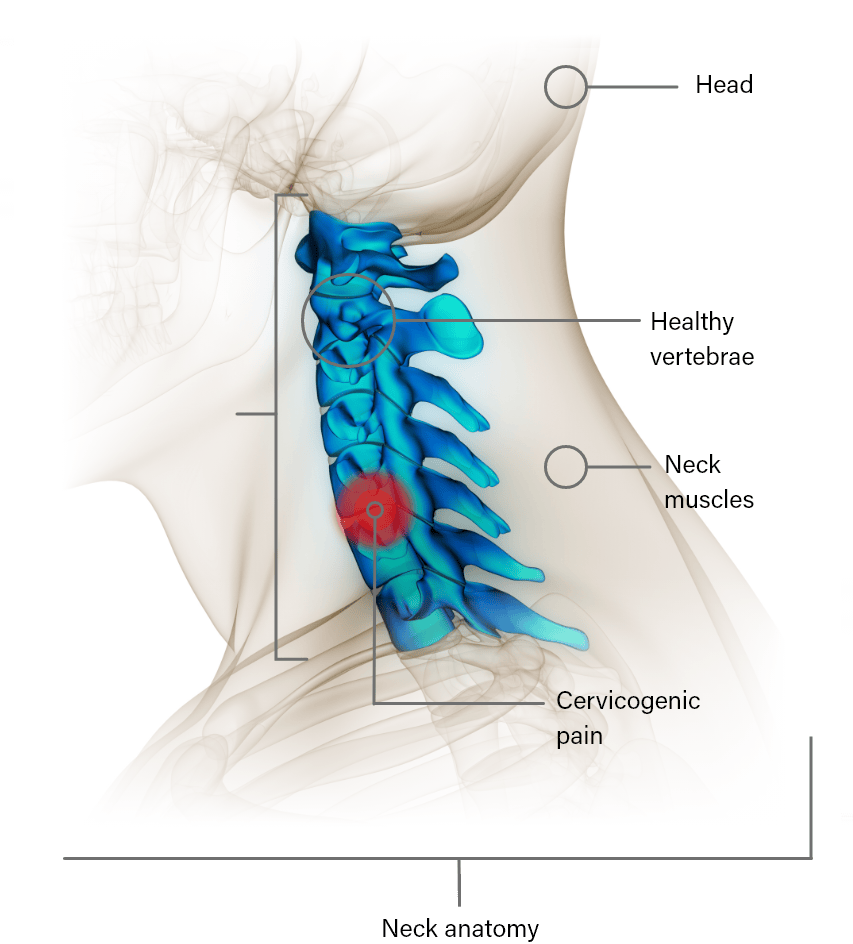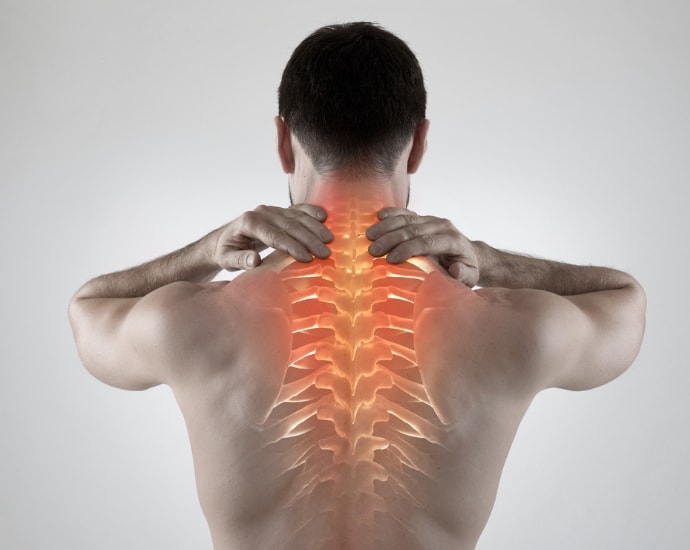Is your chronic headache actually a migraine?
Headaches may occur for numerous reasons. But migraines and cervicogenic headaches are the most common types of headaches affecting nearly 48% of the world’s population. Could your headache be a migraine or cervicogenic pain?
What is Cervicogenic pain?
Explaining cervicogenic headaches

What is cervicogenic pain?
Cervicogenic pain is a type of chronic pain that originates from the neck. It can be caused by several factors, including poor posture, neck injury, whiplash injury after a car accident, arthritis, neck fractures, or degenerative diseases. Cervicogenic pain is often characterized by dull, aching pain radiating from the neck to the shoulders, back, or head. It may also be accompanied by muscle spasms, stiffness, and headaches.

What is cervicogenic headache?
A cervicogenic headache is a type of headache that originates from the neck and the surrounding cervical structures, such as the muscles, ligaments, or joints in the neck. You may suffer from cervicogenic headaches because of car accidents, osteoarthritis, infections, tumors, fractures, or whiplash injuries. Cervicogenic headaches usually start from the neck and radiate upwards; the symptoms are usually felt on one side of the head.

What can cause the cervicogenic headaches?
You may experience cervicogenic headaches because of numerous reasons, such as whiplash neck injuries, car accidents, osteoarthritis, rheumatoid arthritis, degenerative disc disease, poor posture, strained muscles, trigger points in the muscles of the neck, cervical radiculopathy, and other factors that lead to a pinching of the cervical nerves.

What are the differences between migraine and cervicogenic headache?
What if I’m suffering from cervicogenic headaches?
We offer personalized, conservative, minimally invasive treatments for cervicogenic headaches.
Minimally-invasive treatments
Non-opioid solution
Covered by most insurances
So, is cervicogenic headache treatable? YES!
Cervical epidural steroid injection:
As the name suggests, this is an injection that is given to the epidural space of your spine and it involves a steroid. The specific spinal space consisting of irritated nerves is the epidural space. This injection is given to minimize pain and inflammation in your neck, arms, and shoulders. People who receive these shots normally have arthritis, spinal stenosis, and/or herniated discs that exert pressure on their nerves, causing pain, swelling, inflammation, and discomfort. When a cervical epidural steroid injection is provided, these symptoms can disappear.
Cervical facet block injection:
The cervical facet joints are located in the cervical spine and are responsible for allowing the spine to move. These joints can become inflamed or irritated, which can lead to pain. A facet block injection is a procedure in which a local anesthetic or steroid medication is injected into the facet joint. The local anesthetic numbs the area around the injection site, while the steroid reduces inflammation. This is a minimally invasive outpatient procedure; one or two cervical facet block injections are usually enough to alleviate pain.
Trigger point injection:
Cervicogenic headaches are often caused by trigger points, which are areas of muscle tension that can be felt as knots. Trigger point injection is a treatment that involves injecting a needle into the trigger point to relieve muscle tension and pain. Trigger point injection is a relatively simple and quick procedure that can be performed in a doctor’s office in a few seconds.
During a trigger point injection, the pain doctor inserts a tiny needle with a local anesthetic or corticosteroid medication into the trigger points responsible for your cervicogenic pain. The trigger point injection deactivates the trigger points, thus alleviating neck pain and headaches. Trigger point injections don’t involve major risks, side effects, complications, or downtime.
Will your health insurance cover your pain treatment?
Most pain treatments are covered by most health insurances, including medicare. Our insurance specialists are available to discuss your options call us to get started at (877) 461-0819 or fill out the form below:









